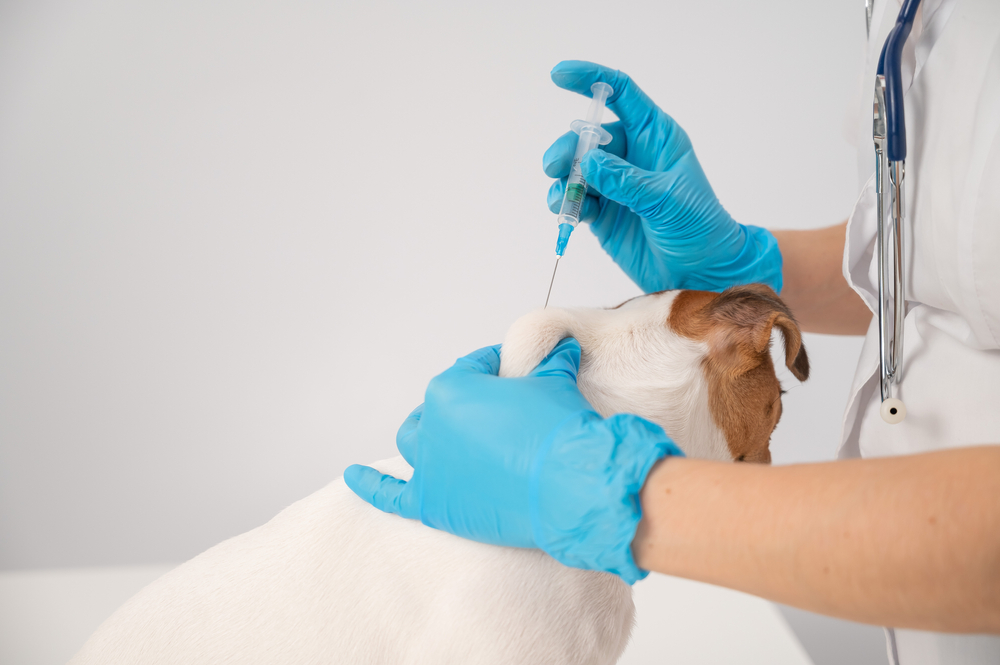

A Comprehensive Guide to Pet Vaccination Schedules: How Often and Why?
Vaccinating your pets is an essential part of ensuring their long-term health and protecting them from potentially life-threatening diseases. Pets rely on vaccines to build immunity and stay protected against infections. But with varying schedules and numerous vaccines available, it can be challenging to understand when and why your pet needs them. This guide will walk you through the basics of pet vaccination schedules and the importance of each vaccine.
Why Are Vaccines Important for Pets?
Vaccinations help prevent common and serious diseases that can affect your pet's health and, in some cases, may even spread to humans. Vaccines stimulate your pet's immune system to recognize and fight off diseases more effectively, helping reduce the risk of infection or mitigate the severity of an illness if exposure occurs.
Not vaccinating your pet leaves them vulnerable to diseases that can be fatal or cause long-term health complications. Vaccinating your pets is not only vital for their protection but also for the safety of other pets and humans in your community.
Core Vaccines vs. Non-Core Vaccines
Pet vaccines are typically divided into two categories: core and non-core vaccines.
• Core Vaccines: These vaccines are considered essential for all pets, regardless of their lifestyle, due to the prevalence and severity of the diseases they prevent.
• Non-Core Vaccines: These are optional vaccines recommended based on your pet's specific risk factors, such as location, lifestyle, and exposure to other animals.
Vaccination Schedule for Dogs
Core Vaccines for Dogs:
• Rabies: This deadly virus affects both pets and humans. Vaccination is usually required by law. Puppies receive their first rabies shot between 12-16 weeks. A booster is given after one year, followed by vaccinations every 1 to 3 years, depending on local regulations.
• Distemper, Hepatitis (Adenovirus), Parvovirus, and Parainfluenza (DHPP): Often given in a combined shot, these protect against multiple serious diseases. Puppies should receive DHPP every 3-4 weeks between 6-16 weeks, followed by a booster at one year and every 1-3 years thereafter.
Non-Core Vaccines for Dogs:
• Leptospirosis: Recommended for dogs exposed to outdoor water sources. Usually given as part of a combination vaccine (DHPP-L) or separately, starting at 12 weeks with annual boosters.
• Bordetella (Kennel Cough): Necessary for dogs frequently exposed to other dogs, such as in boarding facilities or dog parks. Initially administered as early as 8 weeks, with boosters every 6-12 months depending on exposure.
Vaccination Schedule for Cats
Core Vaccines for Cats:
• Rabies: Essential for both indoor and outdoor cats, as rabies is almost always fatal. Kittens receive their first rabies shot between 12-16 weeks, followed by boosters after one year and then every 1-3 years.
• Feline Viral Rhinotracheitis, Calicivirus, and Panleukopenia (FVRCP): This combination vaccine protects against several severe diseases. Kittens should receive their first FVRCP shot at 6-8 weeks, followed by boosters every 3-4 weeks until they are 16-20 weeks old, with a final booster at one year, then every 1-3 years.
Non-Core Vaccines for Cats:
• Feline Leukemia Virus (FeLV): Recommended for outdoor cats or those exposed to other cats. Initial vaccination at 8 weeks, with a booster at 12 weeks and then annually if the cat is at risk.
Why Timing Matters
The timing of vaccines is crucial for effective immunity. Puppies and kittens receive antibodies from their mothers, but these natural defenses begin to wane after a few weeks. Vaccinating during this critical window ensures your pet's immune system can build lasting protection. Early boosters are essential, as younger pets require several rounds of vaccines to fully protect against diseases.
Keeping Track of Booster Shots
Your pet’s initial vaccination schedule is only the beginning. Booster shots are vital for maintaining immunity over time. Your veterinarian will guide you on the appropriate intervals for booster shots based on your pet’s age, lifestyle, and health status. Regular veterinary visits are the best way to stay up to date on your pet’s vaccinations and ensure they’re protected against harmful diseases.
Get Started with The Animal Hospital
Vaccinating your pet is a simple yet crucial step in safeguarding their health and well-being. While core vaccines provide essential protection, non-core vaccines may be necessary depending on your pet's environment and lifestyle. Consulting with your veterinarian about a personalized vaccination schedule will ensure your pet remains healthy and protected throughout their life.
Schedule your pet's vaccinations with The Animal Hospital today. Contact our office in Slingerlands, New York, by calling (518) 456-0852 to book an appointment.








